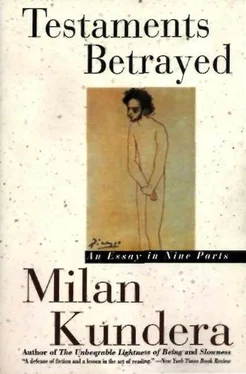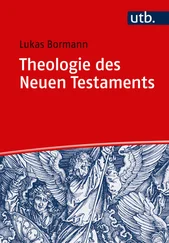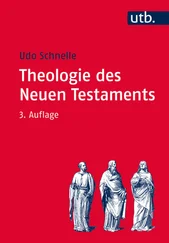
Milan Kundera
Testaments Betrayed: An Essay in Nine Parts
Translated from the French by Linda Asher
TESTAMENTS BETRAYED. Copyright © 1993 by Milan Kundera. Translation copyright © 1995 by Linda Asher. FIRST EDITION
This book was originally published in France under the title Les testaments trahis.
PART ONE. The Day Panurge No Longer Makes People Laugh
The pregnant Madame Grandgousier ate too much tripe, and they had to give her a purgative; it was so strong that the placenta let go, the fetus Gargantua slipped into a vein, traveled up her system, and came out of his mania's ear. From the very first lines, Rabelais's book shows its hand: the story being told here is not serious: that is, there are no statements of truths here (scientific or mythic); no promise to describe things as they are in reality.
Rabelais's time was fortunate: the novel as butterfly is taking flight, carrying the shreds of the chrysalis on its back. With his giant form, Pantagruel still belongs to the past of fantastic tales, while Panurge comes from the yet unknown future of the novel. The extraordinary moment of the birth of a new art gives Rabelais's book an astounding richness; it has everything: the plausible and the implausible, allegory, satire, giants and ordinary men, anecdotes, meditations, voyages real and fantastic, scholarly disputes, digressions of pure verbal virtuosity. Today's novelist, with his legacy from the nineteenth century, feels an envious nostalgia for the superbly heterogeneous universe of those earliest novelists and for the delightful liberty with which they dwelt in it.
Just as Rabelais starts his book by dropping Gargantua onto the world's stage from his mama's ear, so in The Satanic Verses, after a midair plane explosion, do Salman Rushdie's two heroes fall through the air chattering, singing, and carrying on in comic and improbable fashion. While "above, behind, below them in the void" float reclining seats, paper cups, oxygen masks, and passengers, one of them-Gibreel Farishta-swims "in air, butterfly-stroke, breast-stroke, bunching himself into a ball, spreadeagling himself against the almost-infinity of the almost-dawn," and the other-Saladin Chamcha-like "a fastidious shadow falling headfirst in a grey suit with all the jacket buttons done up, arms by his sides… a bowler hat on his head." The novel opens with that scene, for, like Rabelais, Rushdie knows that the contract between the novelist and the reader must be established from the outset; it must be clear: the story being told here is not serious, even though it is about the most dreadful things.
The marriage of the not-serious and the dreadful: witness this scene from Rabelais's Fourth Book: on the open sea, Pantagruel's boat meets a ship full of sheep merchants; one of them, seeing Panurge with no codpiece and with his eyeglasses fastened to his hat, takes the liberty of talking big and calls him a cuckold. Panurge is quick to retaliate: he buys a sheep from the fellow and throws it into the sea; it being their nature to follow the leader, all the other sheep start jumping into the water. In a panic, the merchants grab hold of the sheeps' fleece and horns, and are dragged into the sea themselves. Panurge picks up an oar, not to save them but to keep them from climbing back onto the ship; eloquently, he exhorts them, describing the miseries of this world and the benefits and delights of the next, declaring that the dead are more fortunate than the living. Even so, should they by some chance prefer to go on living among humans, he wishes them a meeting with some whale, like Jonah. The mass drowning accomplished, the good Frere Jean congratulates Panurge, only reproaching him for having paid the merchant beforehand and thus thrown away money. Says Panurge: "By God, I got a good fifty thousand francs' worth of fun for it!"
The scene is unreal, impossible; does it, at least, have a moral? Is Rabelais denouncing the stinginess of the merchants, whose punishment should please us? Or does he mean to make us indignant at Panurge's cruelty? Or, as a good anticlerical, is he mocking the stupidity of the religious cliches Panurge recites? Guess! Every answer is a booby trap.
Says Octavio Paz: "There is no humor in Homer or Virgil; Ariosto seems to foreshadow it, but not until Cervantes does humor take shape… Humor," he goes on, "is the great invention of the modern spirit." A fundamental idea: humor is not an age-old human practice; it is an invention bound up with the birth of the novel. Thus humor is not laughter, not mockery, not satire, but a particular species of the comic, which, Paz says (and this is the key to understanding humor's essence), "renders ambiguous everything it touches." People who cannot take pleasure from the spectacle of Panurge letting the sheep merchants drown while he sings them the praises of the hereafter will never understand a thing about the art of the novel.
The Realm Where Moral Judgment Is Suspended
If I were asked the most common cause of misunderstanding between my readers and me, I would not hesitate: humor. I had only recently come to France, and I was anything but blase. When a famous professor of medicine asked to meet me because he admired The Farewell Party, I was most flattered. According to him, my novel was prophetic; in my character Skreta, a doctor who treats apparently sterile women at a spa by injecting them secretly with his own sperm from a special syringe, I have hit on the great issue of the future. The professor invites me to a conference on artificial insemination. He pulls a sheet of paper from his pocket and reads me the draft of his own presentation. The gift of sperm must be anonymous, free of charge, and (here he looks me in the eye) impelled by a threefold love: love for an unknown ovum that seeks to accomplish its mission; the donor's love for his own individuality, which is to be perpetuated by the donation; and, third, love for a couple that is suffering, unfulfilled. Then he looks me in the eye again: much as he admires my work, he does have one criticism: I did not manage to express powerfully enough the moral beauty of the gift of semen. I defend myself: this is a comic novel! My doctor is a crackpot! You shouldn't be taking it all so seriously! "So," he says, suspicious, "your novels aren't meant to be taken seriously?" I am baffled, and suddenly I realize: there is nothing harder to explain than humor.
In The Fourth Book, there is a storm at sea. Everyone is on deck struggling to save the ship. All except Panurge, paralyzed with fear, who just whimpers: his great lamentations go on for pages. When the storm abates, his courage returns and he bawls all of them out for their laziness. And this is what's odd: not only does this coward, this liar, this faker, provoke no indignation, but it is at the peak of his braggadocio that we love him most. These are the passages wherein Rabelais's book becomes fully and radically a novel: that is, a realm where moral judgment is suspended.
Suspending moral judgment is not the immorality of the novel; it is its morality. The morality that stands against the ineradicable human habit of judging instantly, ceaselessly, and everyone; of judging before, and in the absence of, understanding. From the viewpoint of the novel's wisdom, that fervid readiness to judge is the most detestable stupidity, the most pernicious evil. Not that the novelist utterly denies that moral judgment is legitimate, but that he refuses it a place in the novel. If you like, you can accuse Panurge of cowardice, accuse Emma Bovary, accuse Rasti-gnac-that's your business; the novelist has nothing to do with it.
Читать дальше













